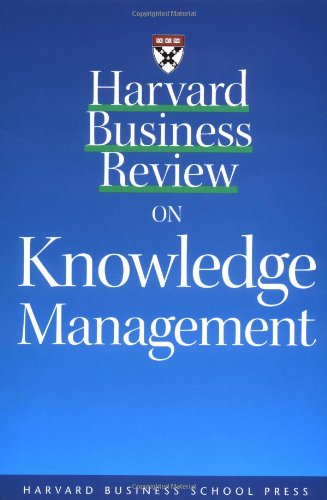Smart people need to learn because they are smart because they learn – Rahul

Why did I chose this resource?
I chose the chapter in this book to understand how to get professionals and executives to be open to learning.
What did you learn from it?
I learned a lot. The problem of getting professionals and executives to learn is more of a individual psychological issue that is greatly affected by individual interactions within the organization.
Key Knowledge
Obstacles to change are routed in the organization and at the individual level due to human psychology.
- Ego
- Pride – I know it all because I have a degree from ______________. No need to continuosly learn or improve unless related to specific project
- I’m the boss or manager … I know it all. (Ego or Fear)
- Seduced by track record of previous successes
- Good job track record – track record of results
- Academic track record – “I have a 3.9 GPA” from __________________.
- Become defensive when their implemented strategies fail
- May blame client for their own failures
- Fear
- Do not want to look bad in front of coworkers either subordinates and superiors
- Fear that looking bad may affect job (i.e. passed up for promotion or more likely to get fired in case of massive layoffs)
- “Doom Loop” – Performance Reviews
- Employees work towards achieving goals (or subgoals) pertaining to performance reviews at the sacrifice of focusing on big picture because of fear of being reprimanded for not achieving “satisfactory” levels on internal performance reviews or project report cards.
- Of challenging superiors
- Communicational misunderstanding
- Disconnect
- Management
- Usually focused on the big picture if not being dictatorial or micromanaging (i.e. Here are the Q&A’s that will be asked at the end of the presentation as opposed to having open Q&A)
- Sometimes may wonder why company and his subordinates are not so focused on the big picture like s/he is.
- Supervisee
- Thinks management cares more about them achieving “satisfactory” marks on performance reviews or project related internal report cards.
- Human nature
- People in general don’t always understand each other clearly
- People don’t always
- Management
- Disconnect
Single loop learning
- Professionals and executives excel at this
- Academic
Double loop learning
- Experiential
- Real world feedback
- Professionals and executives are not as good at this
- Part of reason why they defend their strategies or actions when failure ensues
How are you using what you learned?
Key Changes
- Organize and structure knowledge in an easier to find and understand manner
- Learn what is important to our clients in terms of knowledge search and what metrics are important to their organization as we begin to develop a suite of reporting tools into Appleseed Search
How can we as a company or individuals in the company use this?
Communicate clearly and make sure everyone understands one another.
Foster an encouraging environment for open dialogue amongst colleagues.
Punish malice, not honest mistakes.
Reward “moving forward” and “getting it done” as opposed to hesitancy.
Focus rewards on achieving big picture goals. Performance reviews should be more suggesting guidelines.
Source
- Name : HBR on Knowledge Management
- Author : Compiled
- Physical Book: DC Office
